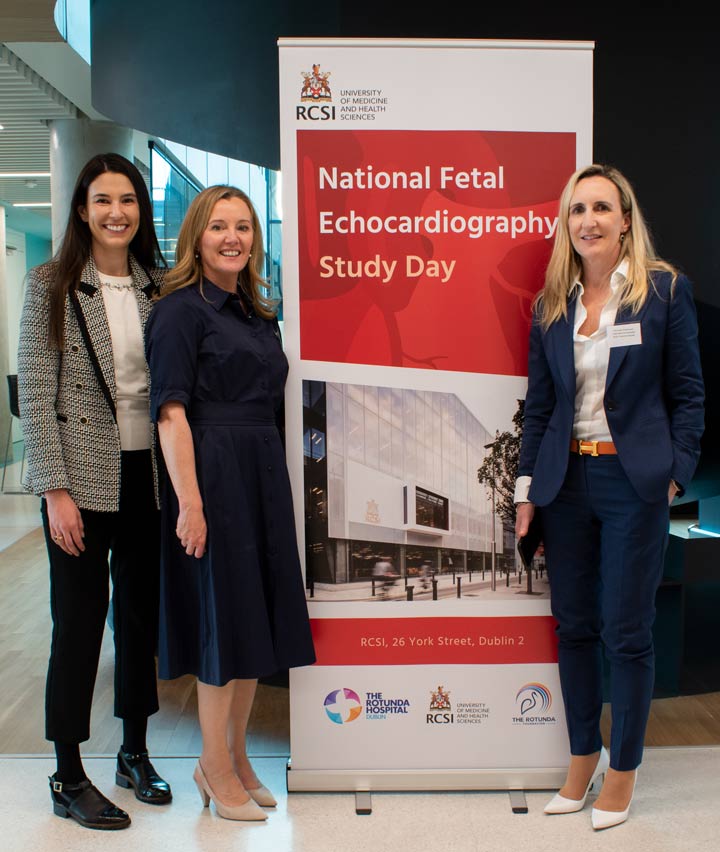Every year, approximately one hundred babies in Ireland are born with critical congenital heart disease (CCHD).
The majority of these babies are born following seemingly uncomplicated pregnancies, however shortly after birth abnormalities in the heart mean that babies cannot circulate oxygenated blood around the body.
CCHD can be fatal, but is often treatable if detected early allowing those affected to lead longer and healthier lives. Survival is dependent on the heart abnormality being detected during pregnancy through a skilled prenatal ultrasound examination.
Hosted by RCSI’s Department of Obstetrics and Gynaecology, in collaboration with the Rotunda and Coombe Hospitals, the National Fetal Study Day was established to train clinical teams in detecting CCHD during pregnancy.
Attendees from all Ireland’s 19 maternity units participated in live scanning of patients, those with normal fetal hearts and those with CCHD.
The aim of the study day was to help improve national detection rates of CCHD and bring them into line with international standards set by the International Society of Ultrasound in Obstetrics and Gynaecology.
Previous targeted training in fetal heart examinations at the Rotunda Hospital in Dublin, improved the detection rate for CCHD from 31% to 91% in a two-year period.
The National Fetal Echo Study Day was organised by Prof. Fionnuala Breathnach, Fetal Medicine Specialist/Consultant Obstetrician, Rotunda Hospital; Dr Orla Franklin, Consultant Paediatric Cardiologist, Coombe/Crumlin Children’s Hospital; Fiona Cody, Clinical Ultrasound Specialist/Radiographer, Rotunda Hospital and Dr Zara Molphy, RCSI Research Programme Manager.
The event was supported by GE healthcare, MDI Medical and The Rotunda Foundation.
RCSI is committed to achieving a better and more sustainable future through the UN Sustainable Development Goals.
![]()

